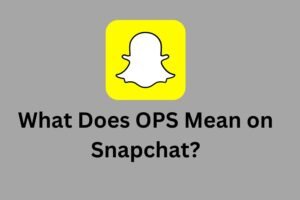Avoid Getting Blocked/Blacklisted During Web Scraping By Using These 10 Tips

There’s no disputing it anymore: businesses will drown without adequate, high-quality data to run on. Enterprise data management has become a top priority of all companies across a scale and industry niches, with 2021 seeing US$ 82.25 Billion going towards it worldwide. With this investment expected to grow at a CAGR of 14 % till 2030, it falls upon every company’s stakeholders to ensure that their data management is on point to remain competitive. That journey begins with getting the correct data for your company in the first place, either by collecting data yourself or through web data scraping services provided by competent professionals.
The internet is a treasure trove of enterprise you can mine to fill your company’s databases. But, as with everything, there’s no free lunch here either. You could end up with more problems than you want if you get this wrong. Besides your raw input data being loaded with multiple errors, you could face legal issues by breaching certain regulations like privacy laws during the act of data scraping. Any such incident will tarnish your brand’s reputation and involve financial losses too.
So, how can you avoid such legal hassles while still getting the data you need for your business? Below are 10 tips you can use to do just that!
Consulting a Legal Professional/Team
Prevention is always better than a cure, so it’s best to go into data scraping with good knowledge of what’s permissible and what isn’t. Going through a legal counsel, preferably one specializing in internet and corporate laws, will provide a clearer path for your scraping project than the alternative. You can select one based on their past performance with other clients and their fee structure to ensure you’re getting great value. If your scraping needs are varied and of a large scale, then it’s best to go with a team, otherwise a qualified individual will do. It helps if your present legal team can work with them and their counterparts in the data scraping outsourcing agency to devise a scraping strategy that incorporates all applicable regulatory clauses.
Using Premium Proxies
Premium proxies are high-speed, stable proxies that have residential IPs. They are commonly used for production crawlers and scrapers, the key components of web scraping. The proxy can be used to bypass certain restrictions your target website may have, such as geography-based access.
The selection of a proxy will be handled by your outsourcing agency itself, but if you’re going in-house with the project, there are a few things to consider concerning web scraping. The most important of those criteria is whether that target website allows your proxy in the first place. Some companies are particular about their website data getting scraped and make it a point to note down and ban premium proxies. If yours happens to be on their radar, then you will have wasted your money on it.
Having multiple proxies and using them through a rotation strategy can help mitigate some of the issues related to such proxy blocking. You can use a proxy provider that allows the proxy to work with your scraping software as a single integrated entity.
Setting Real Request Headers
Companies love website traffic, just not those from web scrapers. This provides a loophole to exploit wherein you can avoid getting blocked by a site by posing as a regular visitor. You do this by setting a real User Agent in the browser used for the scraping.
A User agent is an HTTP header type that informs a website you’re visiting about the activities your browser is doing. Those sites that don’t want their data mined analyze user agents to eliminate those looking to do just that. Web scrapers don’t change their User Agents and get detected and blocked.
But these can be changed to one that the target website is likely to let through, like Googlebot User Agent that most websites use. Changing the user agent is how professional web scraping services providers go about their business without hiccups.
Rotating IPs
The IP address is the primary way websites detect a web scraper. Using a single one for a long time tells the detection mechanism on the other end that it’s a web scraper behind the IP address and thus blocks it. The trick to getting around this problem is conducting IP rotation. This is the method where you use numerous IP addresses when sending your scraping requests to a website so that it avoids getting flagged as a scraper.
With this workaround, you can scrape a lot of websites without disruption from blockages. Note that some sites use advanced IP detection and blocking tools/methods, from which the solution is to have an ever-changing list of IP addresses. Professional mining agencies get IP addresses that may number in the millions, ensuring that the work gets done within the required deadlines.
Varying Request Intervals
It’s not just IP addresses that a web scraper checker uses to detect scraping software. It also uses the frequency of access and data requests to check for signs of web scrapers. So, if an IP continuously accesses the site, then the gatekeeper tool knows that it is likely a web scraper and blocks further requests and access.
Most professional web data scraping services work through this problem by randomizing their request intervals. By allowing sufficient gas between requests to a site, you can stop the detection tool from getting alerted of a web scraper’s presence since it’ll assume that the requests are coming from a regular visitor. Combining this with IP rotation becomes a potent web scraping force.
Using a Headless Browser
Advanced web scraper detector tools can check even the subtlest of signs like fonts, extensions, cookies, and javascript execution for telltale signs of scraper usage. It takes a different approach to avoid such software from your side, like using a headless browser.
There are tools you can use that help you control web browsers with programs to mimic signals coming from regular web users instead of the underlying web scraper. While this task is difficult, it is a way to avoid the advanced snooping tools used by some websites. They consume a lot of computing resources so you should use them in moderation to avoid system crashes.
Avoiding Crawler Baiting
Companies have found a convenient and clever way to detect web crawlers by providing links on their websites that only crawlers would use. This method, also called honeypot trapping, can be an effective way to detect crawlers and block access. The links are typically empty or lead to a landing page with nothing, which is how the target website’s system will know that it’s a bot making the request. You can avoid this by checking the CSS properties of each page you intend to scrape.
Using A CAPTCHA Solver
CAPTCHA has proven to be an effective way to eliminate bots from accessing websites due to the complexity involved in getting through them. But technology has caught up to the extent that, in some cases, they can be overcome. There are services you can use to solve CAPTCHAs automatically, although these come at a premium in terms of both price and speed. You should conduct a cost-benefit analysis before going for sites that require continuous CAPTCHA solving.
Detecting Website Changes
It may seem abnormal, but the layout of websites can cause crawlers to break. This is because the crawlers tend to be designed using typical website layouts, while some companies use unique ones. The crawler you’re using needs to detect such changes and adjust accordingly to continue with data extraction. You should monitor and review these crawler adjustments routinely so that you can confirm the proper functioning of your crawler.
Using Google Cache
This method is used as a last resort when all others are successfully blocked by the target website. It involves crawling a copy of the target website that Google maintains as a part of its search algorithm’s requirements. This method helps if you’re not particular about getting the latest information from the target website. However, note that this solution doesn’t apply to sites that actively prevent Google from having copies via requests.
Conclusion
Enterprise data being a valuable asset means companies are increasing their security measures to protect it better. This includes the data on their websites, making them increasingly challenging for web scraping. But with the right set of tools and tips, you can succeed at getting some information, if not all, that you need to thrive against the competition. What’s more, by opting for web scraping services in India, or one in a similar, developing, low-cost country, you get professional web scraping services to support your cause while keeping your costs and time-to-market down. Such web scraping services providers can help your company gain a strong foothold in the market.
Author Bio:
Jessica is a Content Strategist, currently engaged at Data-Entry-India.com- a globally renowned data entry and management company -for over five years. She spends most of her time reading and writing about transformative data solutions, helping businesses to tap into their data assets and make the most out of them. So far, she has written over 2000 articles on various data functions, including data entry, data processing, data management, data hygiene, and other related topics. Besides this, she also writes about eCommerce data solutions, helping businesses uncover rich insights and stay afloat amidst the transforming market landscapes.






